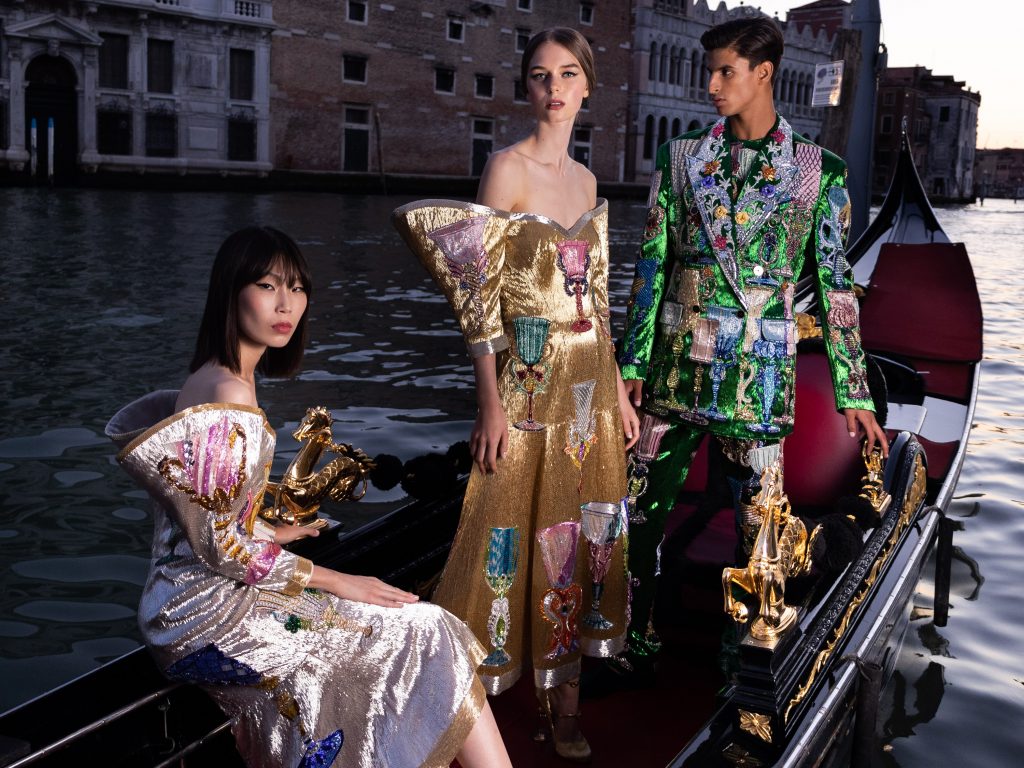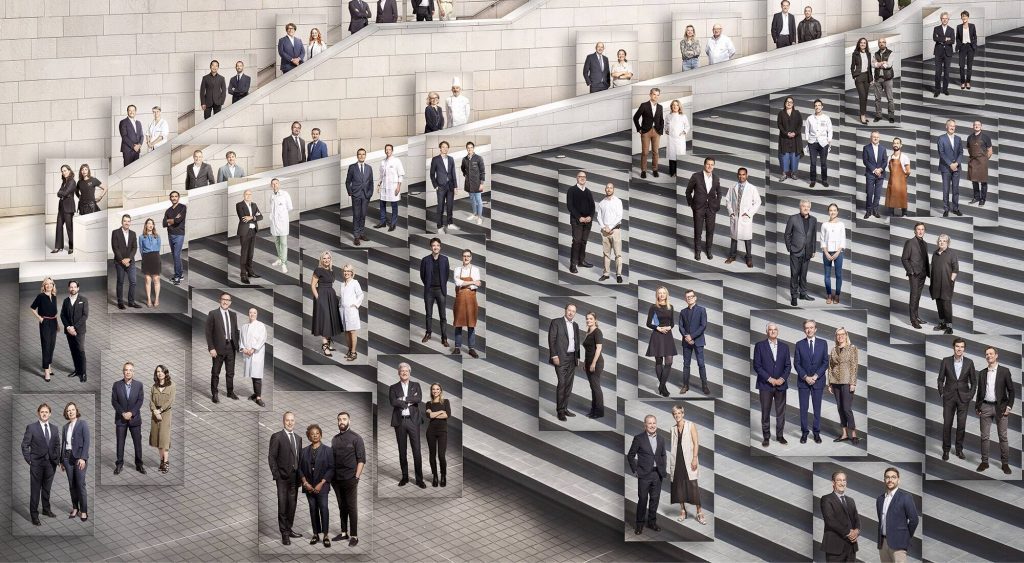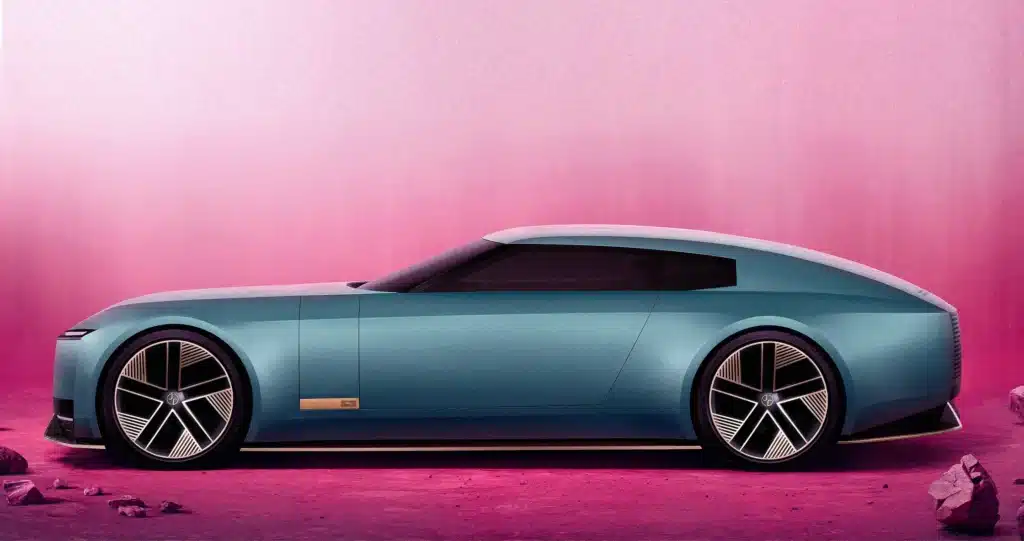The first-ever Metaverse Fashion Week is starting to take shape after Decentraland announced late last year that it will host four days of “catwalk shows and showcases, pop up shops, after parties, and immersive experiences” in March in collaboration with Polygon blockchain-hosted luxury marketplace UNXD, the company that played host to Dolce & Gabbana’s first NFT clothing collection. Fast forward to this week and a number of big-name fashion brands – and Vogue Arabia – have confirmed that they will participate in the virtual event slated to unfold between March 24 and 27, in connection with which consumers will be able to view runway presentations, engage with other viewers, and purchase the virtual garments and accessories for their online avatars.
In a release on Thursday, Decentraland revealed that the upcoming Metaverse Fashion Week – MVFW – will consist of “futuristic” daily runway shows courtesy of fashion brands, such as Dolce & Gabbana, Dundas, and Etro, as well as digital fashion brands like The Fabricant. Not limited to runway shows, the four-day event will include “a luxury shopping area inspired by the architecture at Avenue Montaigne in Paris,” which will house “metaverse brand/shopping experiences” by Tommy Hilfiger, Dolce & Gabbana, Elie Saab, Etro, Dundas, Jacob & Co., Franck Muller, Garrett Leight, Cavalli, Faith Connexion and Faith Tribe, Nicholas Kirkwood, and Chufy, among others. Still yet, Decentraland announced that Selfridges will “officially kick off” the event on March 23 with the inauguration of its flagship metaverse store, complete with an immersive experience with Paco Rabanne + Victor Vasarely.
Additional brands that maintain virtual real estate on Decentraland, a decentralized virtual social platform powered by the Ethereum blockchain, are also expected to launch initiatives of their own in tandem with MVFW.
“Fashion and haute couture are not new to the metaverse,” Decentraland Foundation’s Creative Director, Sam Hamilton, said this week. “Decentraland has been on the cutting edge of rare and in-demand digital fashion since the launch of avatar wearables in 2020. Since that time, creators have been pushing both the technical and stylistic limits of Decentraland wearables and have created a booming economy with over $1 million in sales of avatar wearables last year.”
The impending event comes as interest in non-fungible tokens (“NFT”) and the metaverse more broadly is at an all-time high. NFTs “surged in popularity last year and this growth shows no signs of slowing,” Reuters’ Elizabeth Howcroft wrote recently, noting that sales on OpenSea, which boasts the title of the largest marketplace for NFTs, hit a record $5 billion in January “even as the tech-heavy Nasdaq posted its biggest monthly drop since 2018.” OpenSea, which nabbed a $13.3 billion valuation in January after closing a $300 million Series C round, boasted a transaction volume that surpassed $14 billion for 2021, up from $27.1 million in 2020.
For a point of perspective, despite the surge in popularity of NFTs, the market is still being driven by a small pool. Figures from blockchain analysis platform Chainalysis reveal that between February and November 2021, the 2.7 million NFTs in existence were owned by just 360,000 people. As of January 2022, there were approximately 400,000 active wallets in NFT markets on the Ethereum blockchain, but as Howcroft notes, “One person can own multiple wallets, making volume data an unreliable proxy for demand.” (Compare these figures still to the size of the global crypto market, which has about 295 million users as of the end of 2021.)
As for the impetus for brands, including luxury names, when it comes to things like MVFW, there is the potential for these events to serve as an access point to young consumers (i.e., Gen-Z and their even younger Gen Alpha counterparts), who are proving to be more interested in acquiring digital assets – like avatars and currencies to use on the various metaverse platforms, such as Roblox’s Robux – than physical goods. Beyond being a lifeline to reach these future luxury goods purchasers (or current luxury goods purchasers actually, if you consider things like Balenciaga’s virtual offerings in Fortnite), events like this, along with partnerships, such as Gucci’s pop-up garden in Roblox or adidas’ moves onto the Sandbox platform, give companies the ability to test the waters (and gauge consumer interest in their brand) in the virtual world without having to invest heavily in efforts of their own.
And still yet (and while there are arguments to be made that “real world” trademark rights and registrations somewhat neatly apply to companies’ efforts to offer up similar goods/services in the virtual world than they enjoy rights for in the “real world”), these metaverse ventures, nonetheless, enable brands to begin to amass stronger rights in their famous marks specifically in the metaverse and thus, allow them to have potentially firmer ground to stand on in the event that they want to police unauthorized uses of their marks in this space by way of trademark infringement suits, which are starting to pop up.











